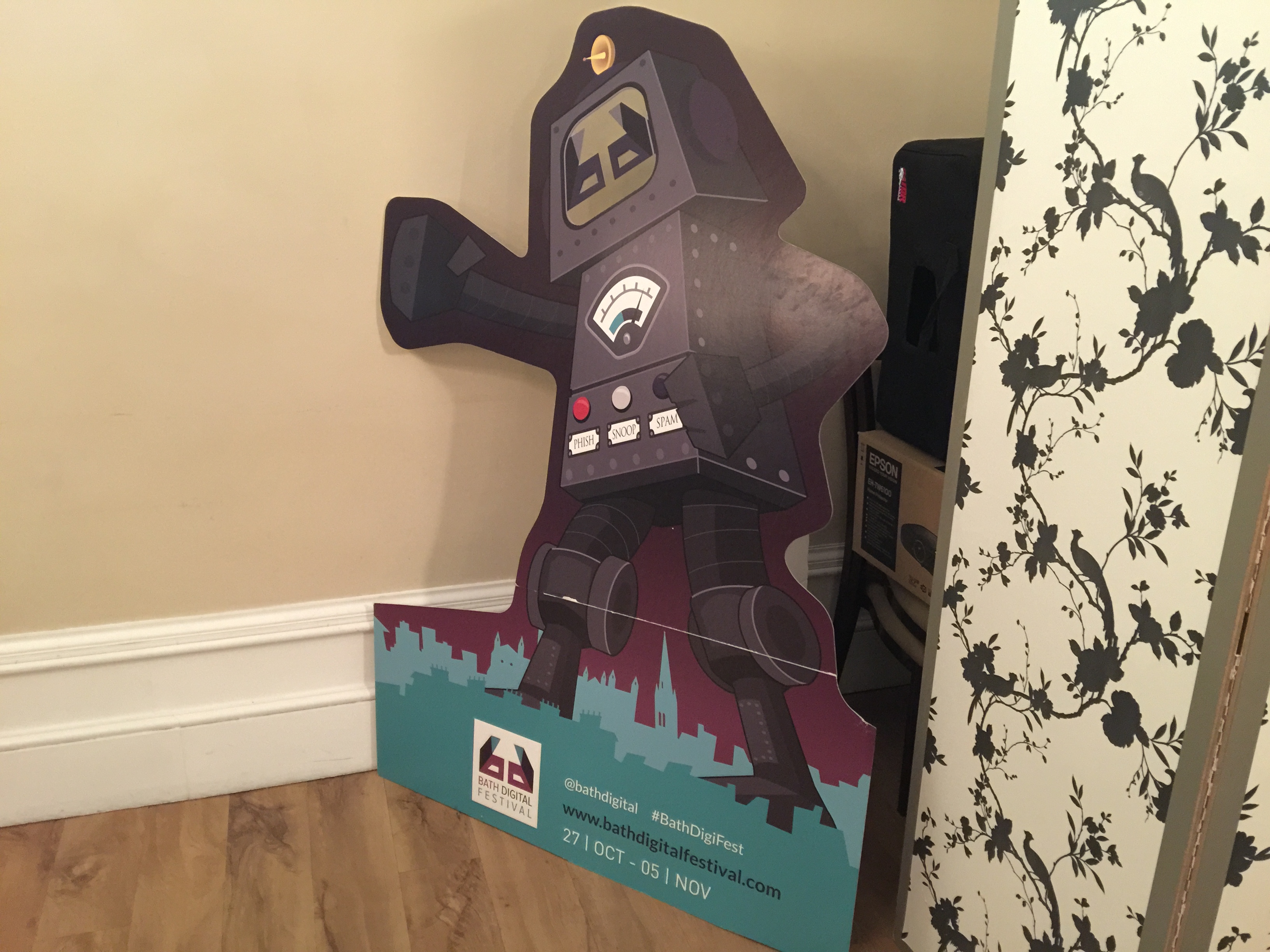Digital For Good: Inspirations

The third year of the Bath Digital Festival was held, well, in Bath, starting on Monday 27th October. Many events took place during the Festival, focusing on creativity, entrepreneurship and technology. I got a chance to attend the closing night on Tuesday the 4th. The theme of the evening was Digital for Good, and it indeed was very good.
The opening talk was delivered by Doug Laughlen, one of the organisers of the festival. He introduced Craneworks, a charitable project he’s involved in. The goal of this project is to renovate a large abandoned factory and warehouse in Bath and turn it into a centre for creativity and invention. Half of the complex should be occupied by offices and the other half by a variety of creative spaces, for art and making. Craneworks should become a creative beacon of the city and keep the young and talented in the region.

Doug’s introduction was followed by Mathew and me talking about Kano. Mat started off with telling the story of how the company started and explained our ideas behind the hardware of the kit. I stepped in for a moment and said something about the operating system and the software that runs on it.
After a short break, Richard Heath and Steve Fisher took the stage to talk about WikiHouse, a collaborative effort to design houses. It’s a global community architects, designers and engineers that share their ideas and work on the designs together. As all the components are made of timber by CNC-milling, anyone can come to their website, download the blueprints and build a house.
Traditionally, architecture has been a domain of the wealthy. The general public could rarely take advantage of it directly, apart from being able to look at pretty buildings. One of the goals of WikiHouse is to bring architecture closer to ordinary people.
Making the design process open to everyone allows for quicker iteration and much more collaboration across disciplines. For example, the designers we’re able to adopt some structural ideas from aviation engineering.
It’s interesting to see the philosophy of open-source expand beyond just software and computing. Not many people would have expected structural engineering project to become open-source. In fact, there are many disciplines that could take advantage of this level of global collaboration. Projects like WikiHouse will be much more common in the future.
Fast-forward to the next session where Tom Steinberg from mySociety talked about power. How can the internet affect the current distribution of power in the world? The answer is: a lot. One of the examples Tom discussed was of the relationship between an owner of a hotel and his customer.
In the past, customers picked hotels mainly based on brand. It was well established that places like Hilton were usually pretty good. Unless you or one of your friends had a personal experience with one of them, that was all the information about a specific branch you could reasonably get. Hotel owners were in a much better position, they had more power than their customers.
Today, there’s TripAdvisor and the situation is a lot different. If you provide bad service, the customer will not like that and possibly give you a bad review. And you can’t take it down. The power has shifted in favour of the customers. There are many other examples, just like this one.
The global network has become an important tool for exhorting power, in politics and business, for good and bad. It’s much easier than it ever was to gather people that share the same views. MySociety provides tools for people to build communities and platforms. It helps them to be heard an get things changed. They run sites like FixMyStreet, FixMyTransport, WriteToThem or WhatDoTheyKnow.
Aral Balkan closed the evening with his talk called SpyWare 2.0. He stressed out that many people are not aware of the business model of companies such as Facebook or Google. They offer great services and employ thousands of people all over the world to be able to do so, but everything is free of charge. That’s odd.
Conspiracies aside, they make money by collecting information about you and your habits, and using them to help other people sell to you better. You’re being served the content you might like, or is it the content someone else paid them to promote? It’s not easy to avoid using their services. Google Search is one of the most essential tools on the internet today, it’s convenient, works well and it’s free. It’s important to be careful as a user and consider what you share with them.
The goal of Aral’s startup, ind.ie, is to build an ecosystem that doesn’t rely on data collection to make money. They’ll use Pulse, a distributed sync service to build a private social network client called Heartbeat. Ultimately, they would like to build a phone, so they can provide a complete experience, and of course, to drive their business. Over the weekend, they launched a crowdfunding campaign to be able to make it happen.
It was an amazing evening, full of inspiration to do good. The technology we have today isn’t good or bad on its own. It depends on us and how we use it. Doing good doesn’t necessarily mean starting a charity. Many businesses are fair to others, responsible towards the environment and they still make a good living. If you’re looking to start one, your motivation can be to make as much money as you can, but it could well be to make a very good living while helping others. Your call.

